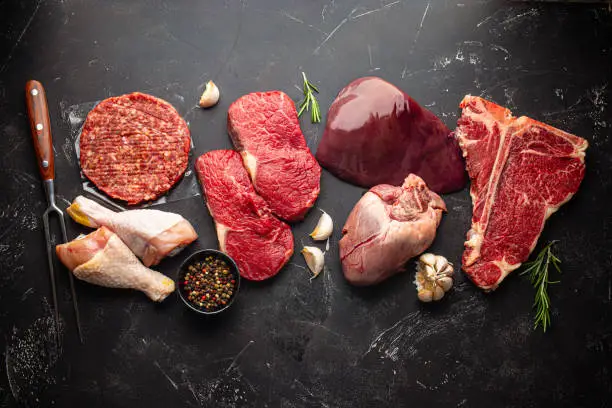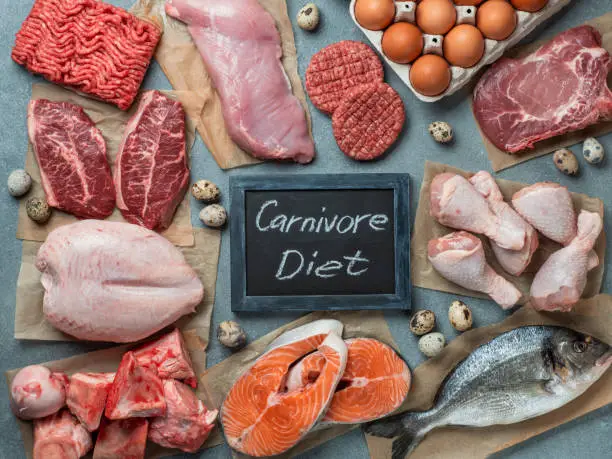The 30-day carnivore diet meal plan is an increasingly popular nutritional strategy that focuses on consuming only animal-based foods, eliminating all plant-based foods. While this approach may seem extreme to some, many individuals have embraced the carnivore diet to experience various health benefits, including improved digestion, weight loss, and reduced inflammation. This article provides an informative look at the 30-day carnivore diet meal plan, exploring what it involves, its benefits, and what to expect throughout the month-long commitment.
Table of Contents
What Is the 30-Day Carnivore Diet Meal Plan?
The 30-day carnivore diet meal plan revolves around consuming only meat, fish, eggs, and limited animal-based products like butter or cheese. Unlike other diets that incorporate a variety of food groups, the carnivore diet eliminates all plant-based foods such as fruits, vegetables, grains, legumes, and even nuts. The basic premise is that the body can thrive on animal products alone, and proponents claim that eliminating plant matter reduces digestive strain, prevents food sensitivities, and promotes weight loss. The goal of a 30-day carnivore diet meal plan is to reset your body and see if eliminating plant-based foods has a positive impact on overall health.

Benefits of Following a 30-Day Carnivore Diet Meal Plan
One of the primary benefits of the 30-day carnivore diet meal plan is its potential for weight loss. Because the diet is high in protein and fats, it can keep you feeling full for longer periods, reducing overall calorie intake. Additionally, when the body switches to burning fat for energy instead of carbohydrates, it enters a state called ketosis, which is known to promote fat loss. Many people on the carnivore diet report feeling leaner and noticing a reduction in bloating.
Beyond weight loss, some people follow the carnivore diet to address specific health issues. For example, individuals suffering from autoimmune disorders or chronic inflammation have reported significant improvements in their symptoms after adopting a strict carnivore regimen. The elimination of potential food allergens like gluten, lectins, and other plant compounds may also be contributing factors to these positive outcomes.
Moreover, a 30-day carnivore diet meal plan may improve mental clarity. Many carnivore dieters claim they experience better focus and cognitive function during the course of the diet. This could be attributed to the stable blood sugar levels maintained by a low-carb, high-fat diet, which avoids the blood sugar spikes and crashes that come with consuming carbohydrates.
Structuring Your 30-Day Carnivore Diet Meal Plan
When preparing a 30-day carnivore diet meal plan, it’s essential to ensure variety within the boundaries of the diet. While you’ll be eating predominantly animal-based foods, there are many options to include in your daily meals to keep things interesting and nutritionally balanced. Start by choosing a range of meats, such as beef, pork, chicken, and lamb, along with fish and seafood. Organ meats like liver and kidneys are also nutrient-dense choices that can help you meet your micronutrient needs.
For a typical day on the 30-day carnivore diet meal plan, you might start with a breakfast of scrambled eggs cooked in butter, paired with bacon or sausage. For lunch, you could enjoy a grilled steak with a side of bone broth for added collagen and minerals. Dinner might consist of salmon or ground beef, served with a small amount of cheese, if tolerated. Snacks can include hard-boiled eggs, beef jerky, or pork rinds. If you’re looking for variety, consider incorporating different cuts of meat, such as ribeye steaks, pork chops, or chicken thighs.
While the 30-day carnivore diet meal plan can be customized based on personal preferences, it’s important to listen to your body throughout the process. Some people may thrive on a stricter version of the diet that eliminates even dairy, while others may include limited amounts of cheese or butter. Either way, staying within the guidelines of animal-based foods ensures you’re reaping the full benefits of the carnivore approach.
Challenges of the 30-Day Carnivore Diet Meal Plan
The 30-day carnivore diet meal plan is not without its challenges. One of the most common hurdles is the monotony of the diet, as it can feel restrictive to only eat animal products for an entire month. Additionally, some individuals may initially experience what’s known as the “keto flu” — a temporary set of symptoms like fatigue, headaches, and irritability as the body adjusts to burning fat instead of carbs for energy. However, these symptoms typically subside after a few days as the body adapts.
Another challenge is ensuring you’re meeting all your nutritional needs on a carnivore diet. While the diet is rich in protein and fat, certain vitamins and minerals, such as vitamin C and fiber, are found primarily in plant-based foods. To mitigate this, many carnivore dieters include organ meats in their meals, which are nutrient-dense and provide essential vitamins and minerals. Others may consider supplementation to fill any gaps.
Final Thoughts on the 30-Day Carnivore Diet Meal Plan
A 30-day carnivore diet meal plan can be a powerful tool for individuals looking to improve their health, manage their weight, or address specific health concerns. By focusing solely on animal-based foods, the diet offers a variety of potential benefits, including weight loss, better digestion, reduced inflammation, and improved mental clarity. However, it’s important to approach this diet with careful planning and an awareness of the potential challenges. If you’re considering a 30-day carnivore diet meal plan, make sure to stay informed, monitor your progress, and consult with a healthcare professional to ensure it’s the right fit for your individual needs.
This meal plan is not a one-size-fits-all solution, but for many, it represents a transformative journey toward better health.

